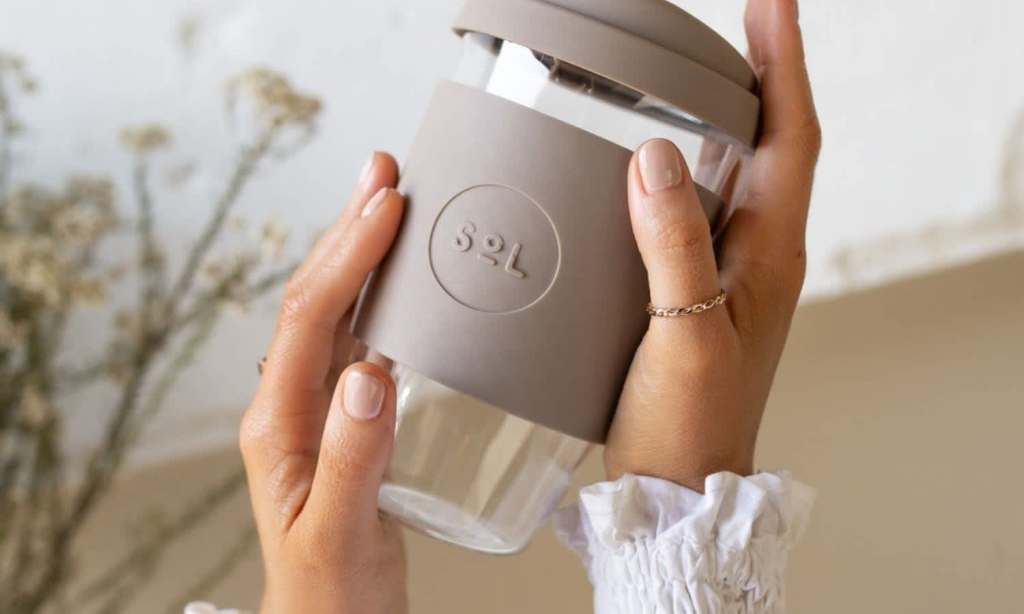We all know by now that single-use plastic isn’t great for the environment. Recycling options often aren’t ideal either, with plastic only really ever being able to be ‘downcycled’ a few times. This is why cutting out single-use plastic wherever possible is the best way to do your part for the environment.
If you’re new to reducing your plastic consumption, or even if you’ve started doing so, but want some more tips and ideas for how to do it better, you’ll find these 10 simple tips for making your everyday actions a little more green will be beneficial.
Bring Your Own Coffee Cup
Takeaway cups are one of the most disposed single-use items and also one of the most avoidable. With everything available from cute pottery cups to smart cups you can pay with — there’s never been a better time to adopt a keep cup.
Bring Your Own Shopping Bags
This one is kind of a no-brainer in this era — however, so many people still forget. If you’re one of those forgetful people, try buying a few of the small fold-up bags, which can be carried in your handbag or glovebox. Then, try and get in the habit of putting them back after you’ve unloaded your groceries.
Start a Compost Bucket
If you have a council green bin, which is picked up weekly alongside your general waste and recycling, then you’re the perfect candidate to start composting. All you need is a cute Tupperware-style container (the larger the better!) with a good seal, and you can start putting all of your compostable waste in there.
Then, simply empty the container each week into your green bin, ready to be picked up and composted. Check with your council about compost waste in your green bin — some actively encourage it, while others are limited to garden waste. If you don’t have a composting service offered by your council, consider investing in a compost bin yourself.
I find the tumbling ones from Bunnings brilliant, but there are many options that make it super easy and simple these days. You can even find countertop kitchen composting bins which are ideal for small spaces or apartments.
Give Up Gum
Did you know that gum is made of synthetic rubber, which is essentially plastic? You can replace this easily with bulk packs of mints or find packaging-free mints at most local bulk food shops.
Start a Veggie Patch
How many times have you bought a plastic tub of herbs to add a few sprigs to a meal? Start your own simple herb and veggie garden (in pots or a garden bed). Herbs and leafy greens are actually the quickest and lowest maintenance thing you can grow, but are disproportionately expensive because they’re tricky to transport and keep fresh. All-round, growing a little garden will mean you’re spending less, spicing up more meals and reducing your plastic use. Win, win!
Make Your Own Cleaning Products
Making your own cleaning products isn’t for everyone, I know. If you’ve ever thought about it, though, give it a go. It’s simple, effective and easy — not to mention you’ll be spraying around way less nasty chemicals.
They can be as simple as vinegar and water (three parts water, one-part white vinegar). If DIY isn’t your style, check out your local bulk food store — most offer cleaning products. You just need to bring your bottle and refill it whenever you’re low. Easy.
Give Up Bottled Water
It’s so simple to bring your own bottle and refill it when needed. It’s really just a habit. If you use straws, you can easily replace these with a reusable stainless steel version, which you can carry with you on the go as well. I love these hand-blown glass bottles from SoL Cup.
Become a Bar and Box Convert
So many goods come packaged in plastic, from shampoo and body wash to laundry liquid or pasta. Get in the habit of always looking for the plastic-free packaging option.
For example, shampoo bars often come in a cardboard box, so by choosing this option — you’re avoiding another plastic bottle. Opt for laundry powder in a box over the plastic bottle of liquid. Once you get the hang of choosing bars and boxes, you’ll love it.
Opt for Plastic-Free Postal Packaging
When you’re shipping parcels, opt for compostable satchels over plastic ones, like these from the sustainable packaging company I co-founded, Hero Packaging.
For businesses, this is a huge way to reduce your overall carbon footprint and plastic consumption. If you have to use a box, opt for plastic-free packaging tape and cardboard boxes over plastic. Also, ditch the bubble wrap for recycled paper or corrugated paper padding.
Choose Natural Fibres
When you’re buying clothing, avoid polyester or other synthetic fabrics and opt for more natural ones like cotton, linen or silk. Support small businesses who put an emphasis on sustainability and longevity of their products, over sales and high turnover.
There’s something lovely about knowing your piece of clothing can be composted after a long and happy life. This tip isn’t limited to clothing either, opt for natural fibres in cleaning cloths, car covers — any time you’re purchasing something fabric.
Read more stories from The Latch and subscribe to our email newsletter.







